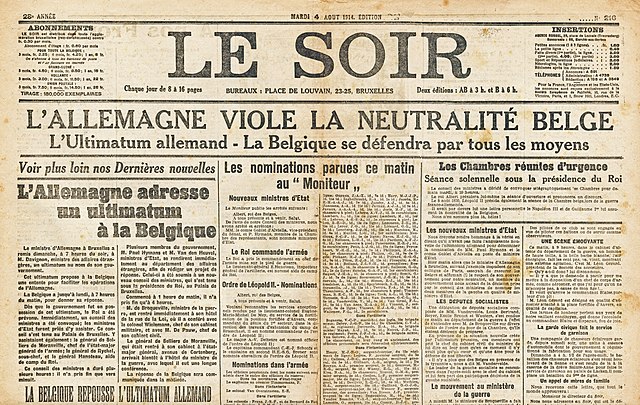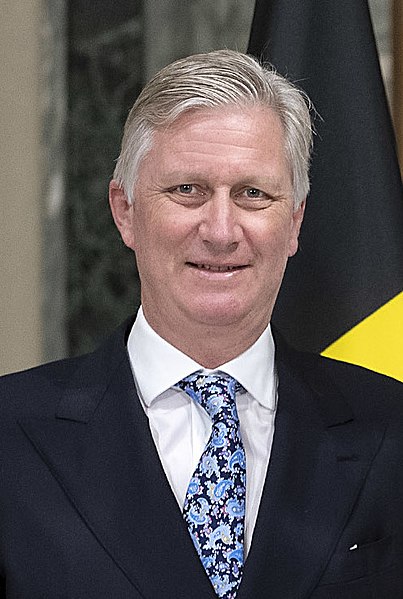German invasion of Belgium (1914)
The German invasion of Belgium was a military campaign which began on 4 August 1914. On 24 July, the Belgian government had announced that if war came it would uphold its neutrality. The Belgian government mobilised its armed forces on 31 July and a state of heightened alert was proclaimed in Germany. On 2 August, the German government sent an ultimatum to Belgium, demanding passage through the country and German forces invaded Luxembourg. Two days later, the Belgian government refused the German demands and the British government guaranteed military support to Belgium. The German government declared war on Belgium on 4 August; German troops crossed the border and began the Battle of Liège.
Albert I, King of the Belgians since 1909; Albert commanded the Belgian army in the First World War
"Germany Violates Belgian Neutrality": Headline in Le Soir, 4 August 1914
Fortified position of Liège
Contemporary Belgian depiction of the Battle of Halen
Belgium, officially the Kingdom of Belgium, is a country in Northwestern Europe. The country is bordered by the Netherlands to the north, Germany to the east, Luxembourg to the southeast, France to the south, and the North Sea to the west. It covers an area of 30,689 km2 (11,849 sq mi) and has a population of more than 11.5 million, making it the 22nd most densely populated country in the world and the 6th most densely populated country in Europe, with a density of 376/km2 (970/sq mi). Belgium is part of an area known as the Low Countries, historically a somewhat larger region than the Benelux group of states, as it also included parts of northern France. The capital and largest metropolitan region is Brussels; other major cities are Antwerp, Ghent, Charleroi, Liège, Bruges, Namur, and Leuven.
Episode of the Belgian Revolution of 1830, Gustaf Wappers, 1834
Cheering crowds greet British troops entering Brussels, 4 September 1944
Philippe King of the Belgians since 21 July 2013
Alexander De Croo Prime Minister of Belgium since 1 October 2020








